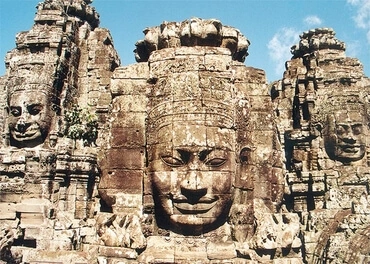1. The Holy Scripture Throughout Has the Lord As Its Subject, and the Lord Embodies the Word
We read in John:
In the beginning was the Word, and the Word was with God, and the Word was God. This was in the beginning with God. All things were made by Him, and without Him nothing was made that was made. In Him was life, and the life was the light of people. And the light shines in the darkness, and the darkness did not comprehend it.... And the Word moreover became flesh and dwelt among us, and we beheld His glory, the glory as though of the only begotten of the Father, full of grace and truth. (John 1:1-5, 14)
Again in the same Gospel:
...the light came into the world, but people loved darkness more than light, for their deeds were evil. (John 3:19)
And elsewhere in it:
While you have the light, believe in the light, that you may be children of light.... I have come as a light into the world, that whoever believes in Me should not abide in darkness. (John 12:36, 46)
It is apparent from this that the Lord is, from eternity, God, and that God Himself is the Lord who was born in the world. For we are told that the Word was with God, and that the Word was God. Also that without Him nothing was made that was made. And later we are told that the Word became flesh, and people beheld Him.
[2] Why the Lord is called the Word is little understood in the church. However, He is called the Word because the term “Word” symbolizes Divine truth itself or Divine wisdom itself, and the Lord embodies Divine truth itself or Divine wisdom itself. That, too, is why He is called the light, which is also said to have come into the world.
Because Divine wisdom and Divine love are united, and were united in the Lord from eternity, therefore we are told as well that “In Him was life, and the life was the light of people.” Life means Divine love, and light Divine wisdom.
This is the union meant by the statement that the Word was in the beginning with God and that God was the Word. With God means in God, for wisdom is present in love, and love in wisdom.
So, too, we find elsewhere in John:
...Father, glorify Me with Yourself, with the glory which I had with You before the world was. (John 17:5)
“With Yourself” means in Yourself. That, too, is why we are told, “And God was the Word.” And elsewhere that the Lord is in the Father, and the Father in Him, and that He and the Father are one.
Now because the Word is the Divine wisdom accompanying Divine love, it follows that it is Jehovah Himself, thus the Lord, by whom all things were made that were made, inasmuch as they were all created out of Divine love by means of Divine wisdom.








